
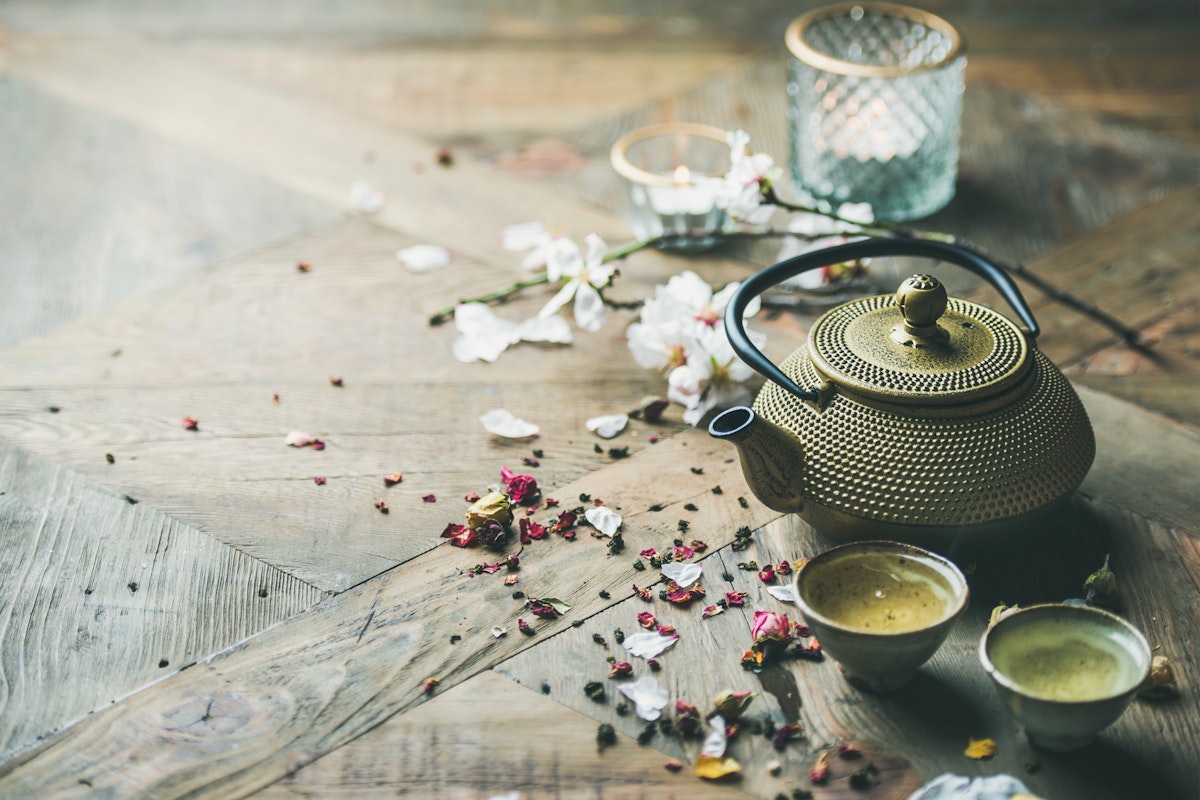
Setting off on an adventure to Tokyo, Japan's vibrant capital, opens the door to experiencing a deeply ingrained cultural practice: the Japanese tea ceremony. It embodies an artistic celebration, a dedication to the art of mindfulness, and an homage to sophisticated hospitality.
Nestled within Tokyo's dynamic cityscape, you'll find peaceful tea rooms that serve as sanctuaries of calm, where the ritual of preparing and enjoying matcha green tea evolves into a lyrical act of unity and esteem. Through this article, we invite you on a captivating journey into the heart of the Japanese tea ceremony in Tokyo.
You'll uncover its storied past, bask in its profound elegance, and learn about the premier spots to engage in this enduring ceremonial practice.
The traditional Japanese tea ceremony, often called "Chanoyu" or "Sado," is a cultural ritual steeped in Zen Buddhism. In this serene and meditative practice, matcha, a finely ground green tea, is artistically prepared and served to a select group of guests by an adept practitioner, fostering a peaceful and contemplative atmosphere. The history of the Japanese tea ceremony in Tokyo is deeply intertwined with the city's cultural and historical evolution.
Originating over a thousand years ago, the tea ceremony has evolved from a pastime of the elite to an art form embraced by all levels of society, reflecting the core principles of harmony, respect, purity, and tranquility.
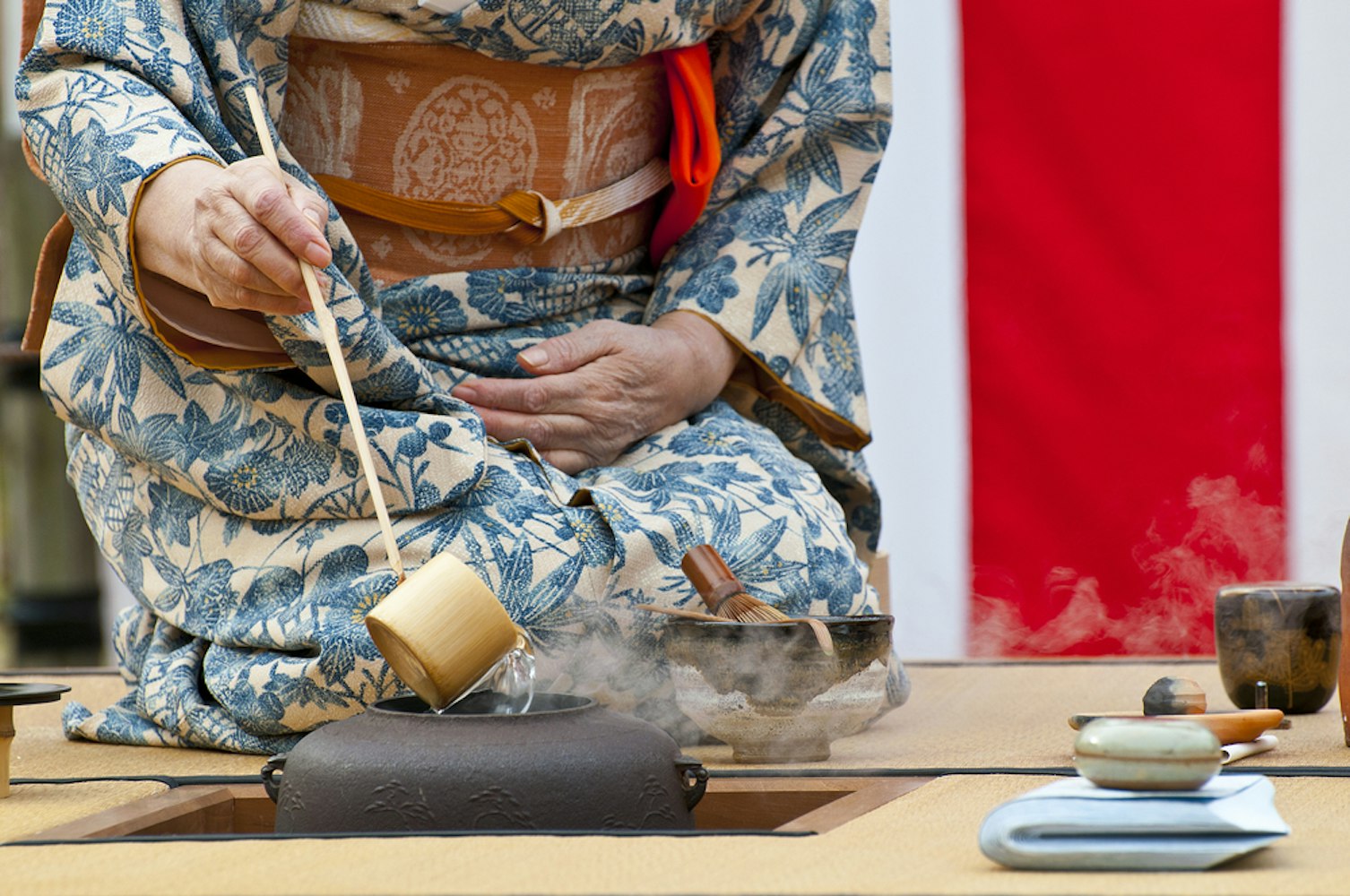
Tokyo Maikoya is a renowned cultural experience center in Tokyo, Japan, offering a unique window into traditional Japanese culture. It is particularly famous for its immersive tea ceremony experiences, where visitors can engage in the age-old ritual while wearing authentic kimonos.
The center also provides a variety of other cultural activities, including calligraphy lessons, flower arrangement workshops, and opportunities to interact with real Maiko and Geisha. Tokyo Maikoya's dedication to preserving and sharing Japanese heritage makes it a must-visit destination for those seeking to understand and appreciate Japan's rich cultural traditions.
Location: Shinjuku
Price: 2,400 yen/5,200 yen (with Kimono)
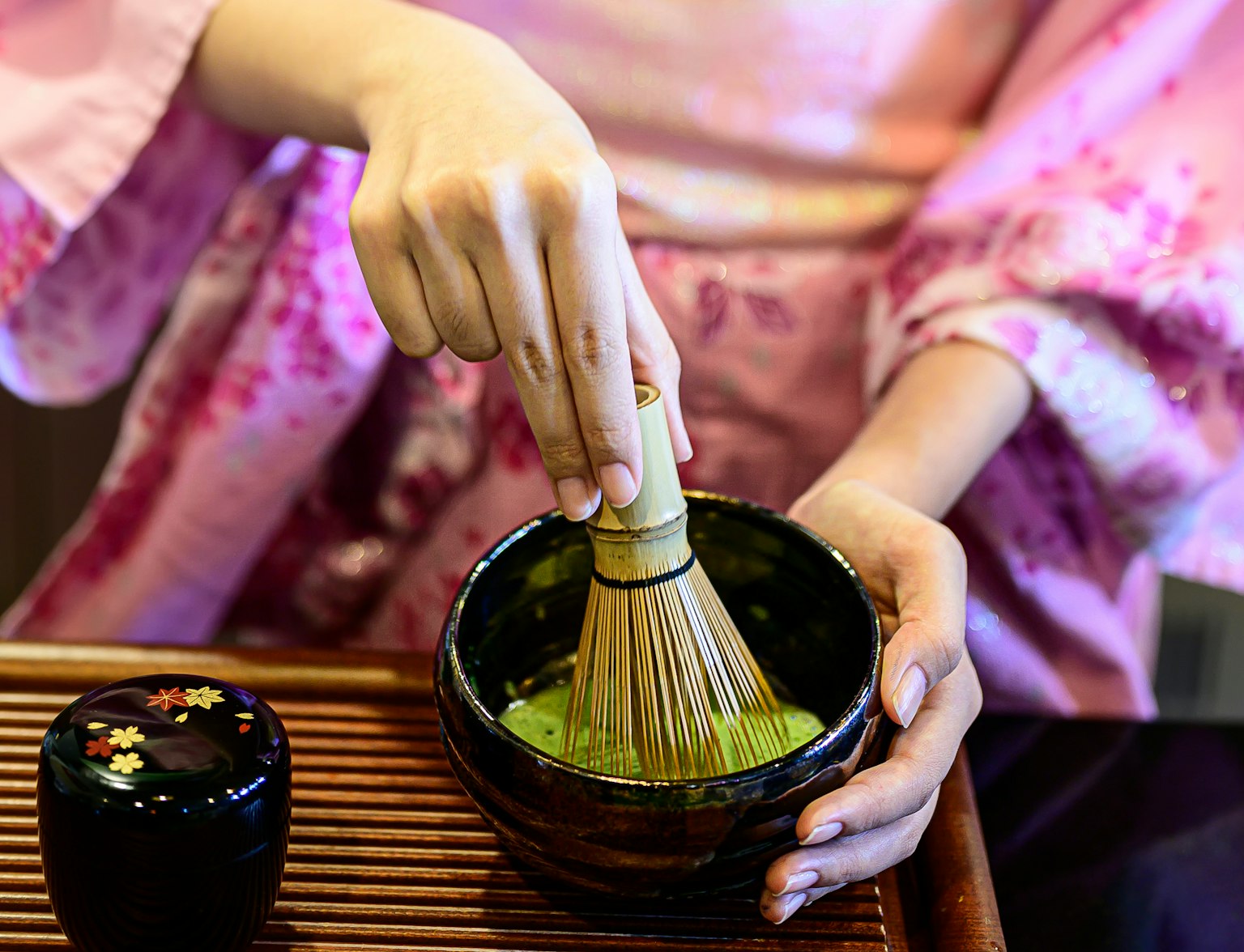
Join a tea ceremony in Tokyo.
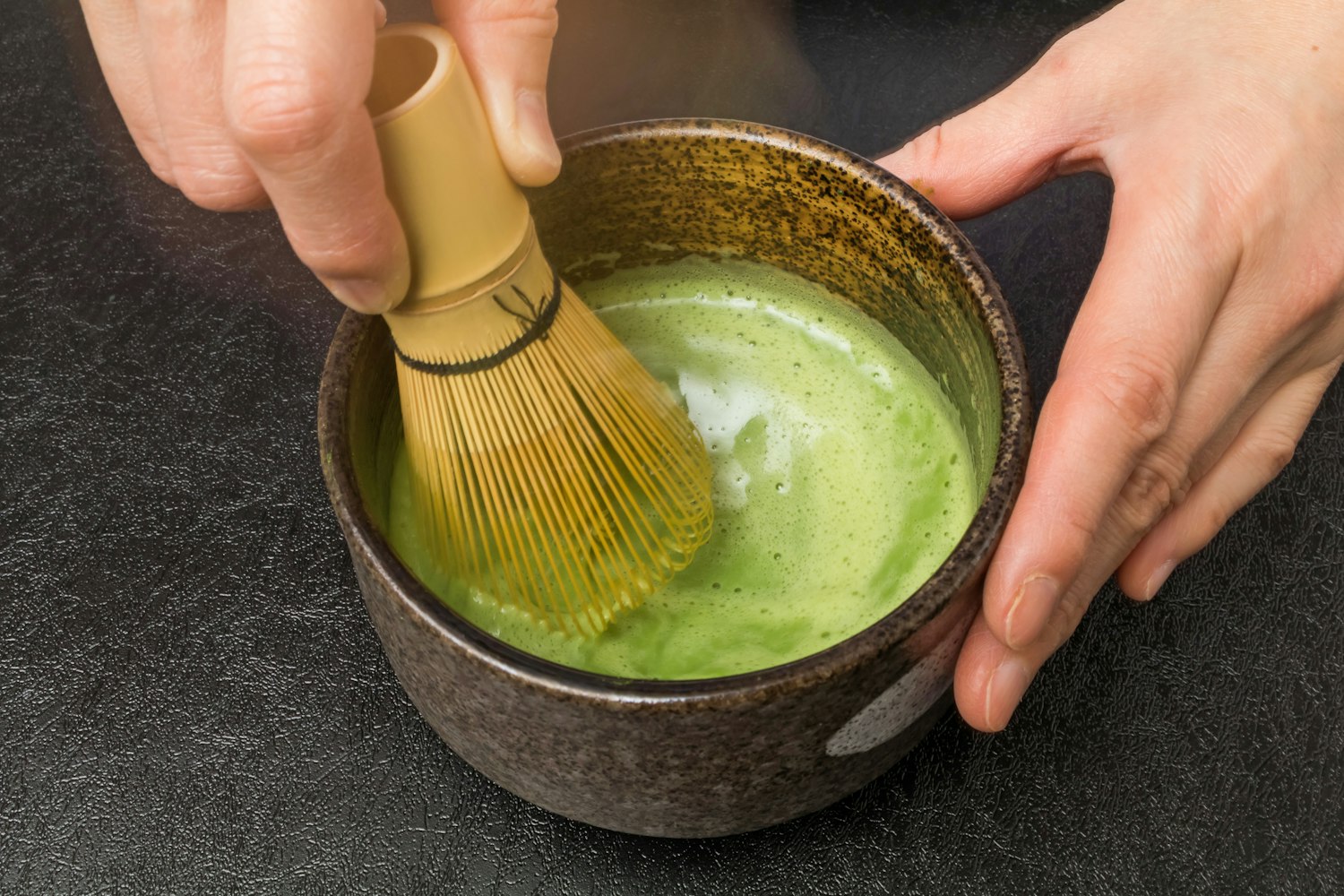
The Happo-en Tea Ceremony in Tokyo offers a captivating experience, blending traditional Japanese culture with serene natural beauty. Set in the exquisite Happo-en garden, renowned for its meticulously maintained bonsai trees and tranquil koi ponds, the ceremony is a peaceful retreat from the bustling city.
Participants are immersed in the ancient art of tea making, guided by skilled tea masters who exemplify the principles of harmony, respect, purity, and tranquility. This unique cultural event offers a taste of authentic Japanese green tea and provides a deeper understanding of Japan's rich heritage and customs.
Location: Shirogane
Price: 8,640 yen (with Kimono)
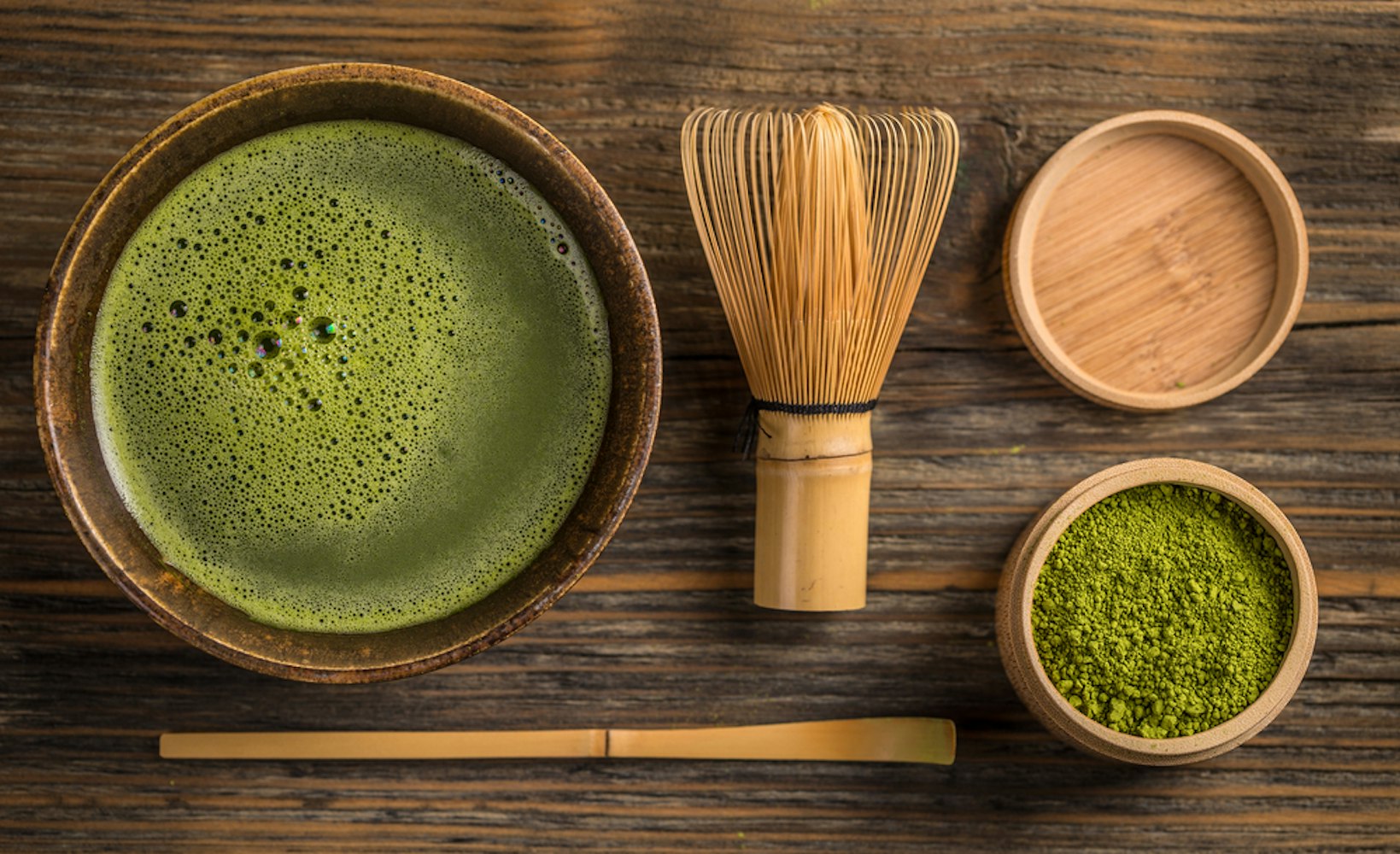
airKitchen provides a range of tea ceremony experiences in Tokyo, offering a unique opportunity for cultural exchange with Japanese locals. These ceremonies, often held in the hosts' homes, offer travelers an authentic insight into Japan's traditional tea practices and everyday life.
Participants experience the tea ceremony and have the chance to learn the art of making Wagashi or Sushi. This immersive experience combines cultural learning with the enjoyment of preparing and sharing traditional Japanese dishes.
Location: All Around Tokyo
Price: 4,000 yen (Kimono is optional)
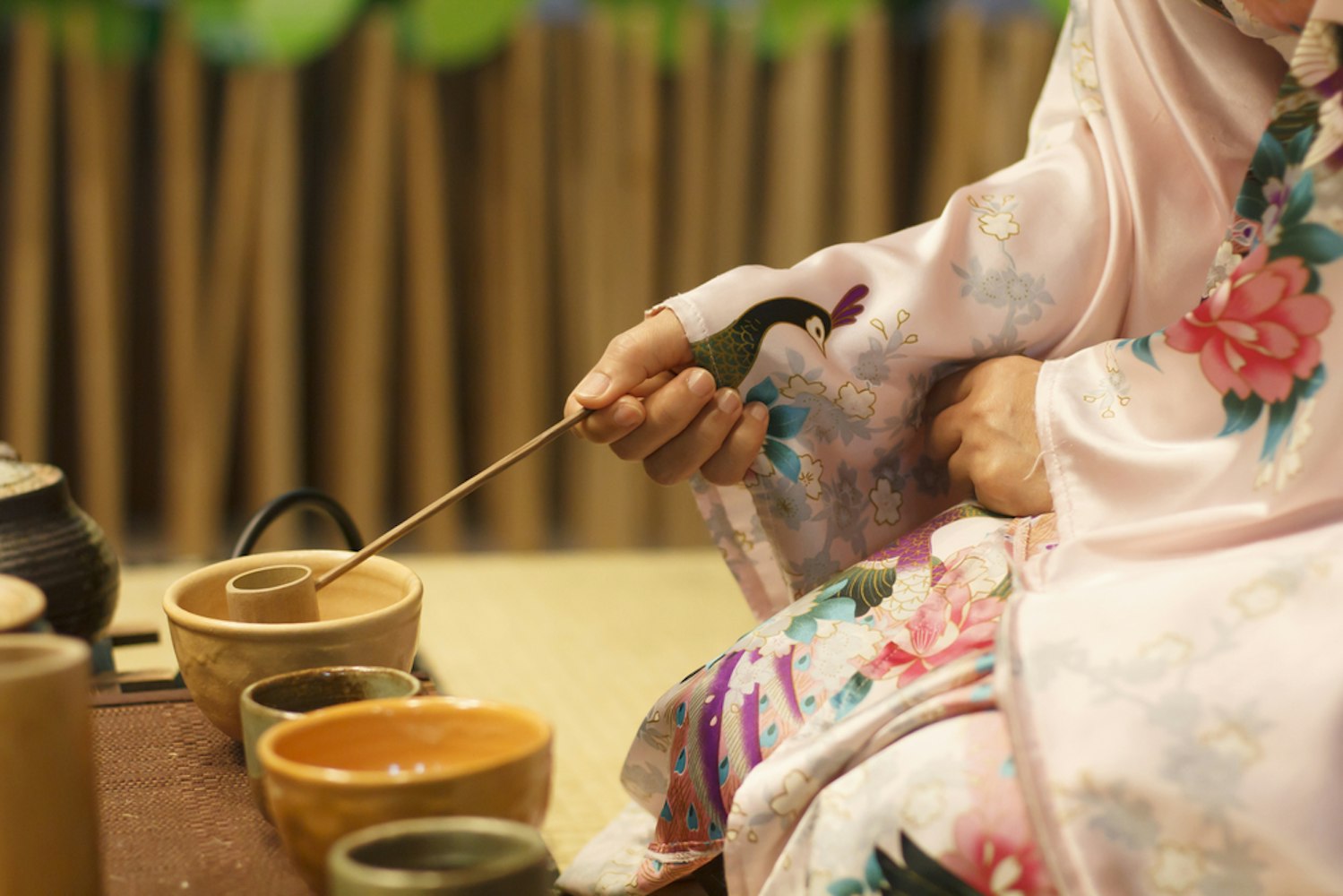
Hamarikyu Gardens, once a samurai lord's estate, now offers a tranquil retreat near Tokyo Station, boasting a historic, expansive Japanese garden. This serene park, conveniently located close to the city's hub, provides an ideal setting for relaxation and exploration.
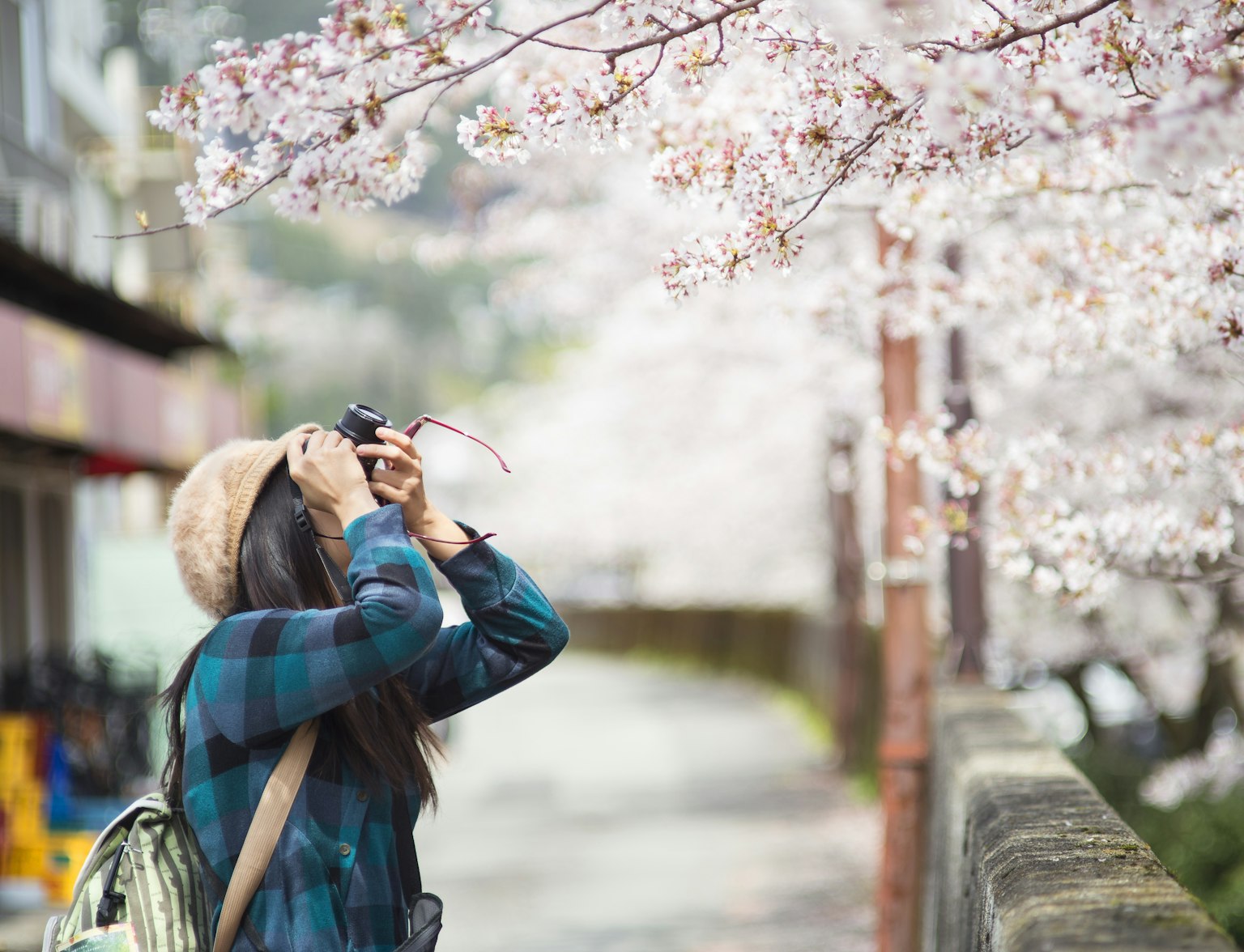
Visit Hamarikyu Gardens with this tour.
Visitors can indulge in traditional Japanese tea and sweets, immersing themselves in cultural delights. The park's allure is enhanced by the seasonal beauty of cherry and plum blossoms, adding a picturesque backdrop to the experience.
Location: Tsukiji
Price: 500 yen
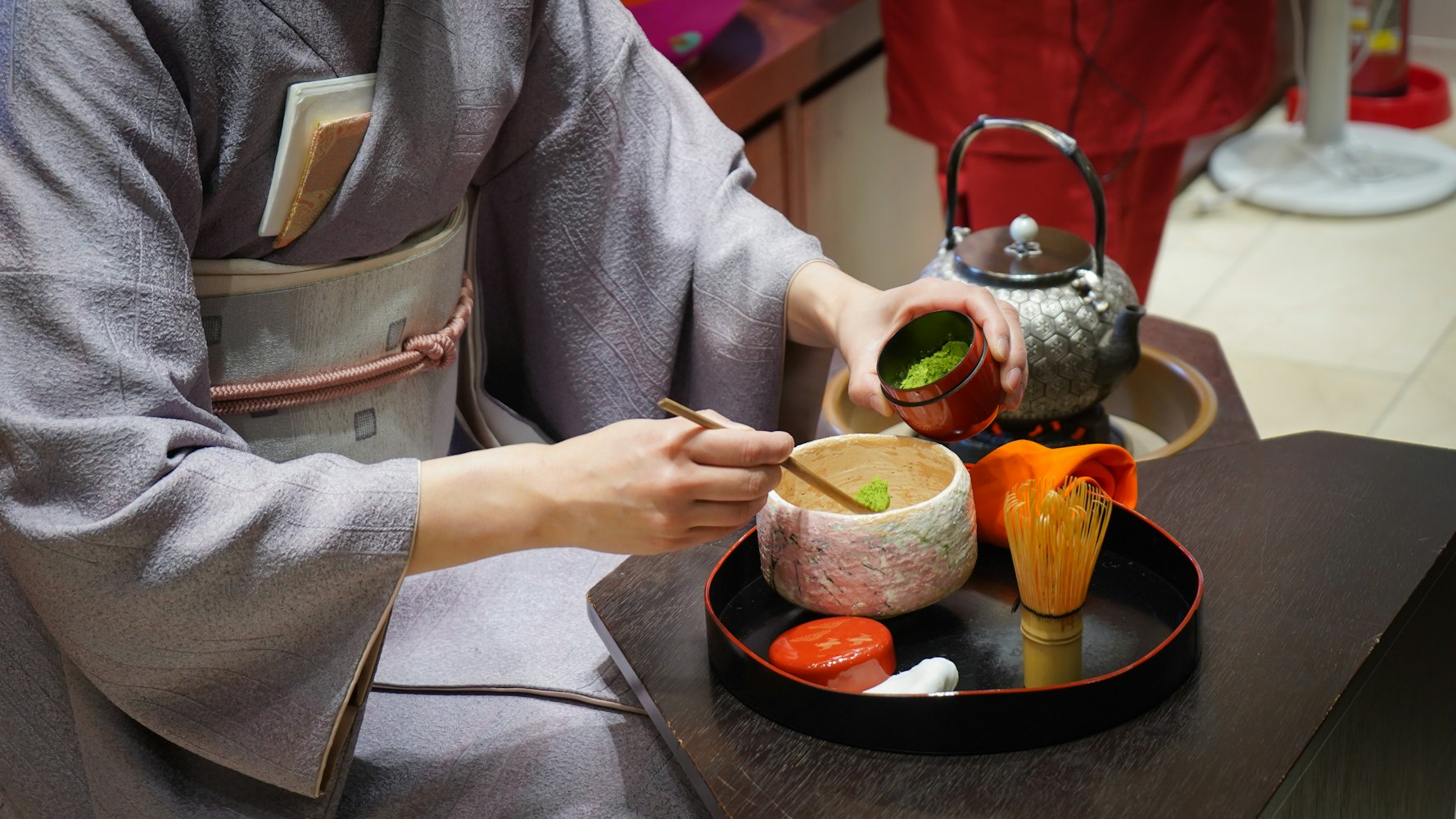
Hisui Tokyo, situated in the Ginza district near Yurakucho, offers both locals and tourists an array of martial arts and traditional Japanese craft courses. Additionally, they run an online store specializing in battojutsu.
While enjoyable, their tea ceremony experience is considered somewhat expensive, including the tea ceremony and wearing of Kimono, despite no significant differences in location or service quality. The school is a hub for cultural learning and appreciation in Tokyo.
Location: Ginza
Price: 10,000 yen (with Kimono)
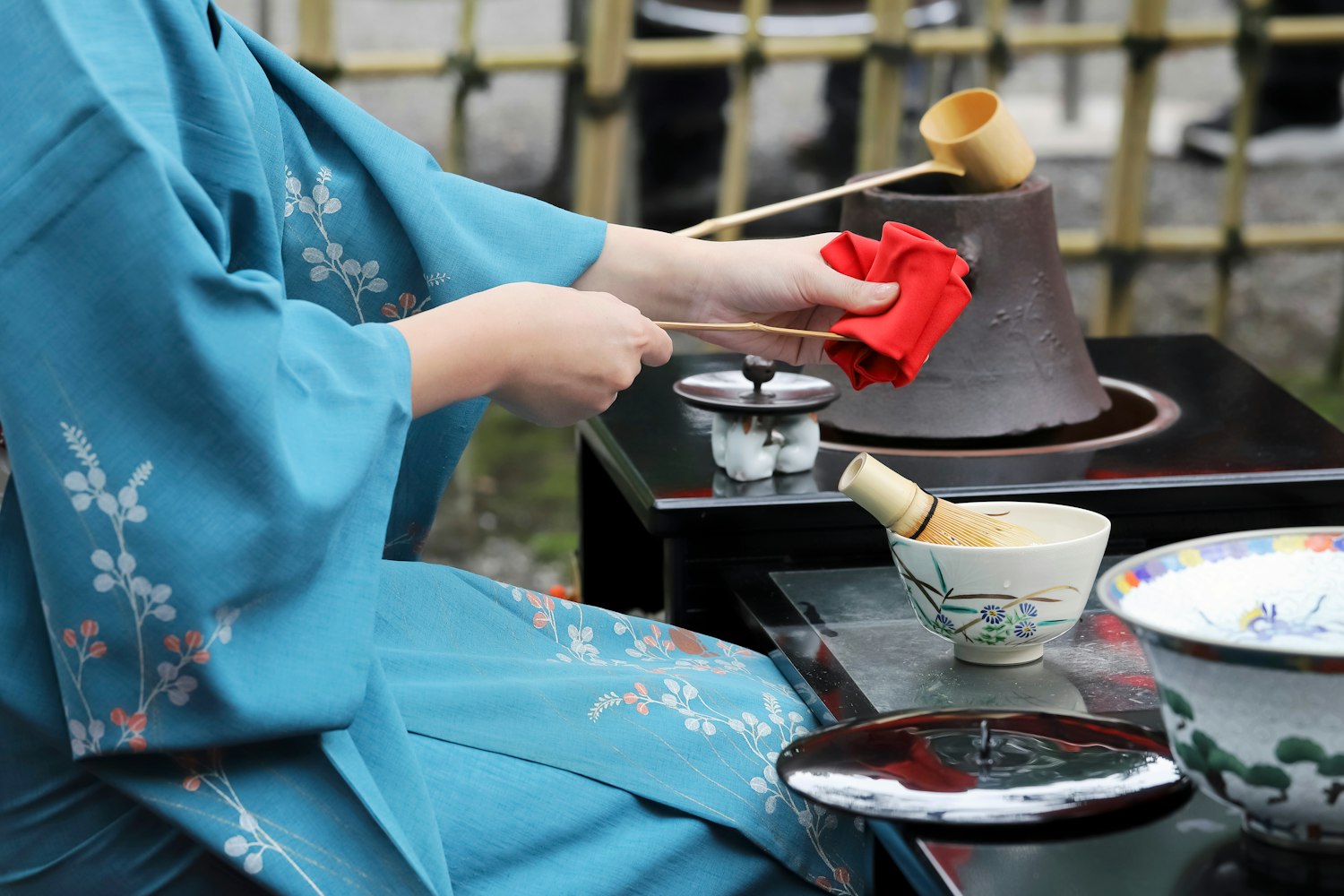
The Chazen tea ceremony, a distinguished cultural experience in Tokyo's Ginza district, offers English-language tea ceremonies in a traditional tatami room on the 5th floor of an office building. Unlike its counterpart, Hisuian, known for its martial arts-affiliated male manager, Chazen is led by a skilled female tea host and stands out for its proximity to the renowned Kabuki-za theater.
Priced at 3,500 yen without a kimono, Chazen presents an exclusive opportunity for those seeking a serene retreat from the dynamic Ginza shopping area. This unique venue combines traditional Japanese tea culture with a prime location, ideal for those looking to immerse themselves in Tokyo's rich heritage.
Location: Ginza
Price: 3,500 yen/8,500 yen (with Kimono)
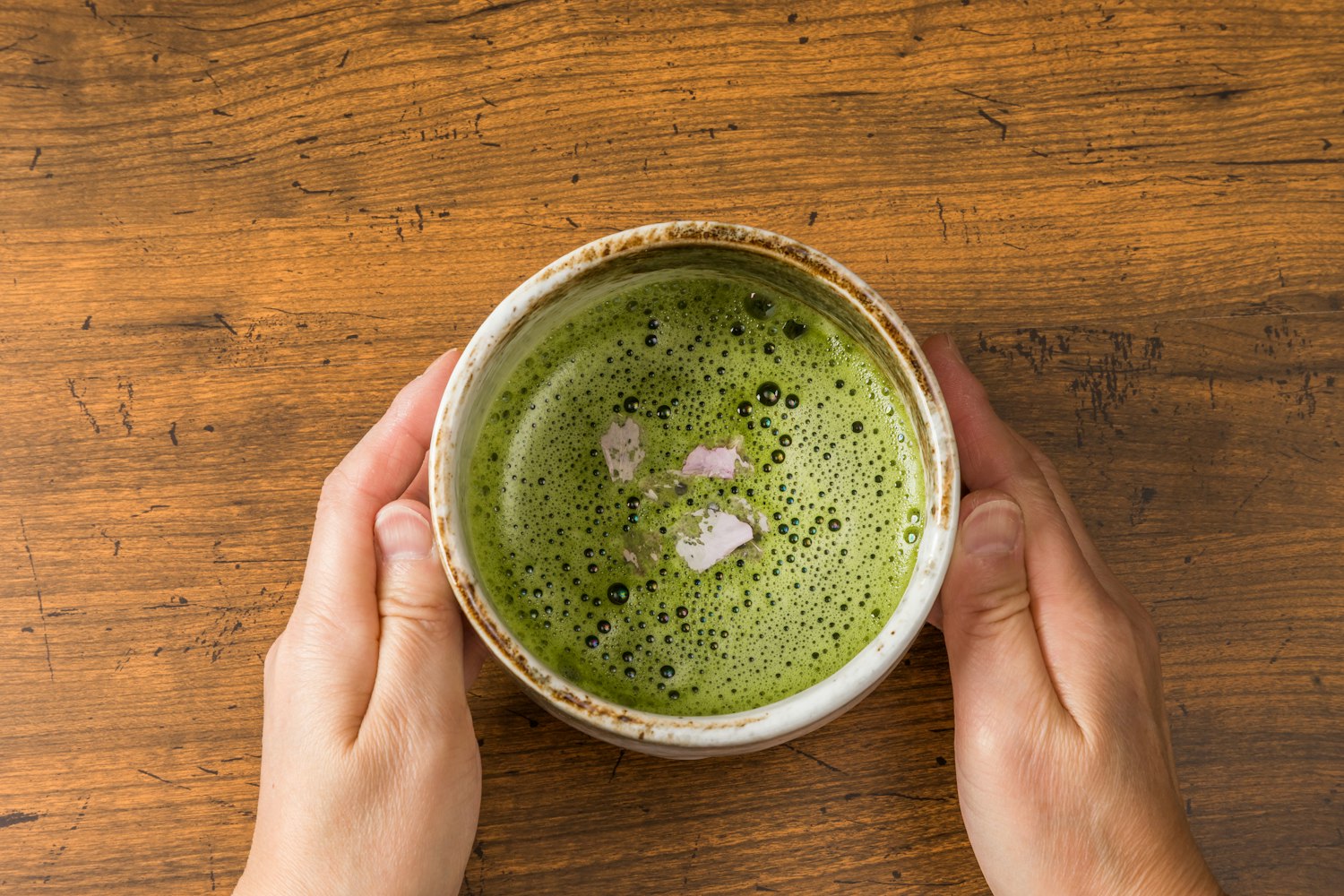
The Nadeshiko tea ceremony, named after the term for an elegant Japanese woman, is situated in Asakusa, close to Tokyo's oldest and famous Sensoji Temple. While appearing more like a kimono rental shop than a traditional tea house, Nadeshiko offers a unique tea ceremony experience on its ground floor.
Visitors can choose between a combined kimono and tea ceremony package for 5,000 yen or just the tea ceremony for 2,700 yen. Conveniently located just a five-minute walk from Asakusa train station, Nadeshiko operates daily from 11 am to 5 pm but remains closed during winter.
Location: Asakusa
Price: 5,000 yen (with Kimono)
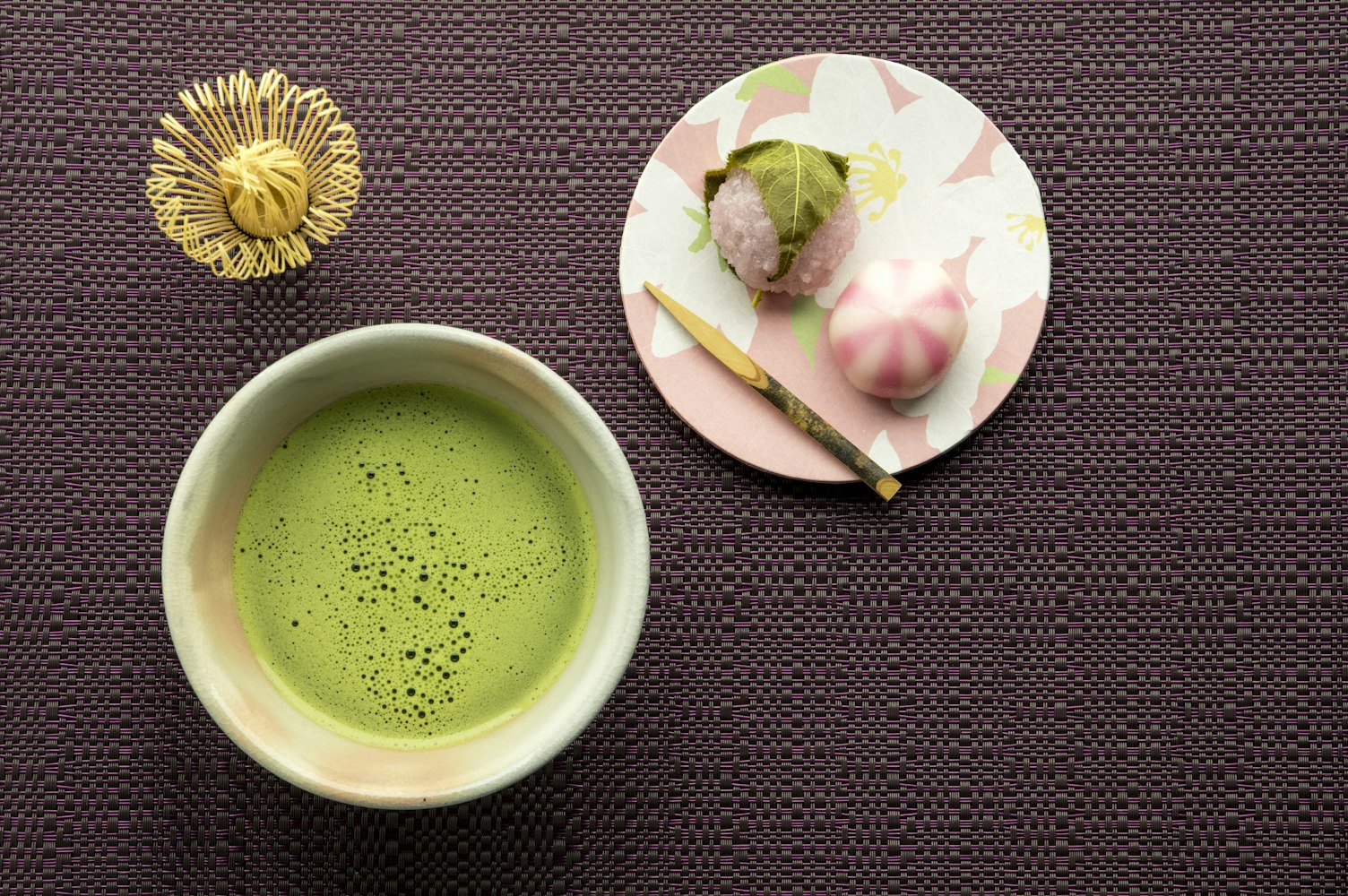
Shizu Kokoro, situated close to Asakusa and nearby Nadeshiko, specializes exclusively in the tea ceremony led by the experienced tea master Mrs. Haneishi. Unlike Nadeshiko, which offers a variety of activities, Shizu Kokoro's focus is solely on the art of the tea ceremony.
Mrs. Haneishi, who has an extensive background in tea ceremony, conducts classes that last for 90 minutes. Additionally, the establishment features a gift corner offering Japanese crafts, and the tea ceremony experience is priced at 4,100 yen, excluding kimono rental.
Location: Asakusa
Price: 4,100 yen (tea ceremony only)
Before guests arrive, the host meticulously prepares the tea room, utensils, and the tea itself. It includes selecting the appropriate utensils based on the season, occasion, and guests.
Guests typically wait in a separate area (waiting room or garden) before being called to the tea room. Before the tea ceremony, they cleanse their hands and mouths in a stone basin, symbolizing purification.
Guests enter the tea room in a specified order, often crawling through a small entrance, symbolizing humility. They admire the tea utensils and decorations silently, often including a hanging scroll and seasonal flowers.
The host cleans the tea utensils in a prescribed manner in front of the guests. Hot water is first poured into the tea bowl, then emptied and wiped with a cloth. The host then places a measured matcha into the tea bowl using a bamboo scoop (chashaku).
Hot water is added to the matcha, and the host uses a bamboo whisk (chasen) to mix the tea and water into a frothy consistency.
The tea bowl is passed to the primary guest. The guest bows to accept the tea, admires the bowl, rotates it to avoid drinking from its front, sips it, carefully cleans the bowl's rim, and hands it over to the next person in line.
This process is repeated until all guests have tasted the tea.
Before or after drinking tea, guests are often served traditional Japanese sweets (wagashi), which help to balance the bitter taste of the matcha.
After all guests have had their tea, the host cleans the utensils for guests to inspect. It is a sign of respect and appreciation for the tea tools.
The ceremony concludes with a bow, and guests express their gratitude for the tea and the effort the host put into preparing the ceremony. The guests then leave the tea room quietly and respectfully.
Each step in the tea ceremony is performed with grace, precision, and mindfulness, reflecting the principles of harmony, respect, purity, and tranquility.
Experiencing a Japanese tea ceremony in Tokyo is not just about enjoying matcha green tea and Japanese sweets; it's a journey into the heart of Japanese culture, tradition, and hospitality. Whether sitting on a tatami floor in a traditional tea ceremony room or participating in a tea ceremony in a picturesque Japanese garden, each moment offers a deeper understanding of the ritual and its significance in Japanese life.
Remember, a formal tea ceremony in Tokyo is more than a cultural activity; it's an immersive experience that connects you with the history and soul of Japan.
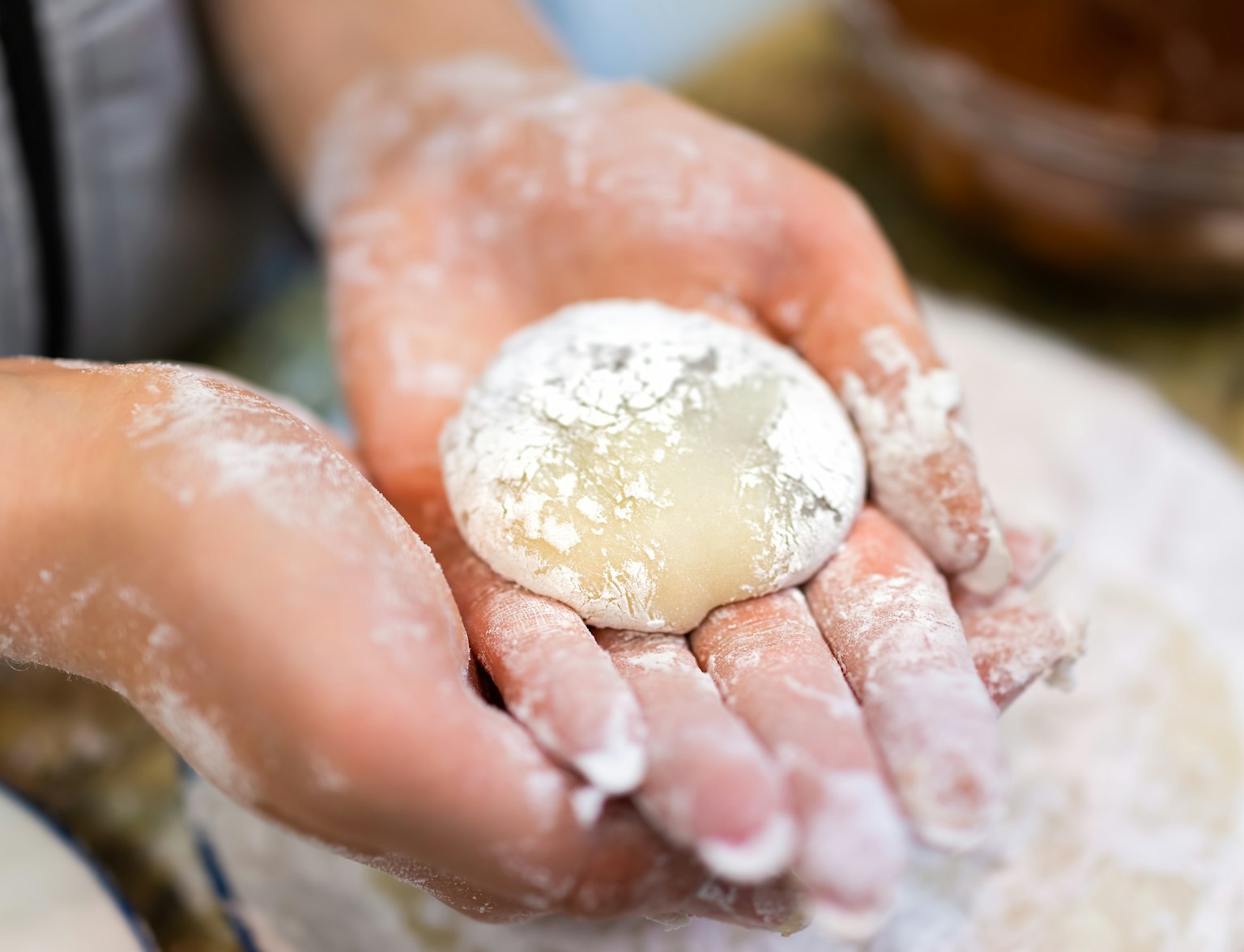
Create, taste, and celebrate the seasons with authentic sweets and Matcha tea.



